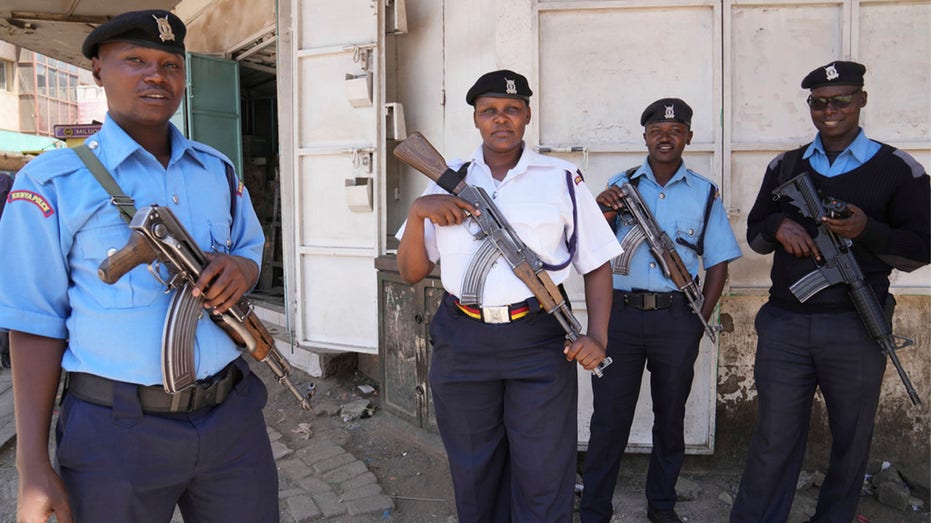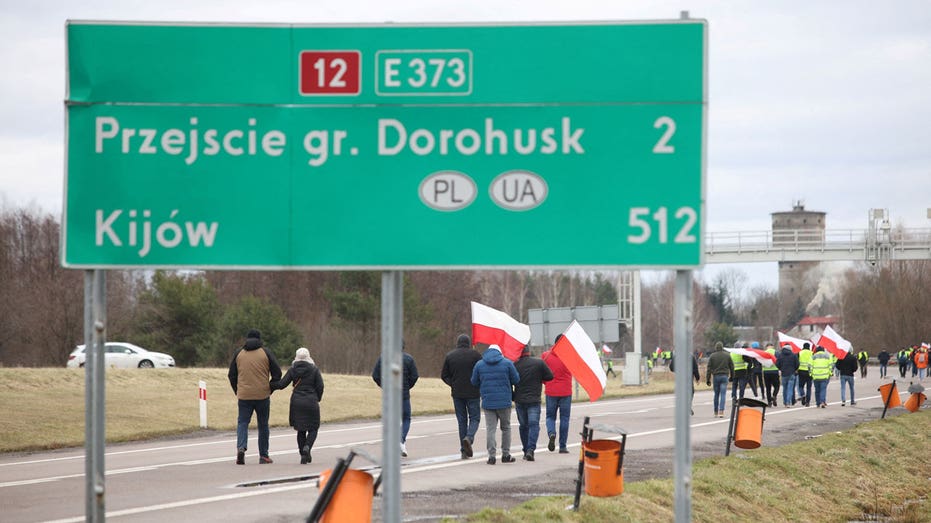Kenya on Thursday said it was pausing a much-needed deployment of 1,000 police officers to Haiti, as the Caribbean nation cripples under weeks of gang violence and social unrest.
Abraham Korir Sing’Oei, Kenya’s principal secretary at the foreign ministry, said deploying police officers would be contingent on the “ground situation” in Haiti.
“[T]here has to be an authority that can be the basis for a police deployment, that enjoys constitutional authority in Haiti,” Sing’Oei said.
The pause in deploying troops came as a plan to create a transitional presidential council in Haiti seemed to be moving forward Thursday, albeit on rocky terrain.
A majority of Haitian parties and coalitions submitted the names of those charged with overseeing the transition to a new government, Caribbean officials said Thursday.
Caribbean leaders, as well as U.S. Secretary of State Antony Blinken, met in Jamaica earlier this week to address the dire situation in Haiti and announce plans to create a nine-member council. Shortly after the meeting, Haitian Prime Minister Ariel Henry agreed to resign once the council was created.
WHO IS ‘BARBECUE’ THE GANG LEADER WREAKING HAVOC IN HAITI?
After the announcement, violence subsided somewhat, but flared up again late Wednesday and early Thursday as armed gangs attacked a police academy. There were also reports of a fire at the National Penitentiary in downtown Port-au-Prince, one of two prisons attacked more than a week ago. It wasn’t immediately clear if anyone was injured or killed in the blaze or how it started.
Meanwhile, Jimmy “Barbeque” Cherizier, leader of a gang alliance, has threatened political leaders who take part in the transitional council.
“Don’t you have any shame?” Cherizier said in a rambling 7-minute audio message shared Thursday morning on the messaging platform WhatsApp. “You have taken the country where it is today. You have no idea what will happen.”
“I’ll know if your kids are in Haiti, if your wives are in Haiti … if your husbands are in Haiti,” he said in an apparent threat to their families. “If you’re gonna run the country all your family ought to be there.”
In his remarks, Cherizier said the resignation of Henry was only “a first step in the battle” for the island nation of around 11 million.
Haiti’s capital and other areas have become overrun by powerful gangs that control around 80% of the nation’s capital, Port-au-Prince.
Late last month, gunmen launched a series of attacks on key state institutions, including police stations, the main international airport and Haiti’s two biggest prisons, where more than 4,000 inmates were freed. Scores of people have died in the attacks, and more than 15,000 people have been left homeless.
Henry, the prime minister, was in Kenya when the attacks began to try and secure a U.N.-backed deployment of a police force from the East African country. He remains in Puerto Rico, unable to return home.
Schools, gas stations and airports remain closed in Haiti’s capital and beyond, although public transportation has resumed, and a growing number of Haitians have been seen on previously empty streets.
Earlier this week, the U.S. evacuated non-essential personnel from its embassy in Haiti. Troops remain stationed there to shore up security at the embassy.
Deputy Pentagon press secretary Sabrina Singh said Thursday there were no plans at this time to evacuate U.S. citizens from other parts of the country or to send in ships, aircraft, or other assets.
“Our focus is making sure that our personnel in the embassy are safe,” she said Thursday. “And that’s why you’ve seen an increase in our security posture there.”




